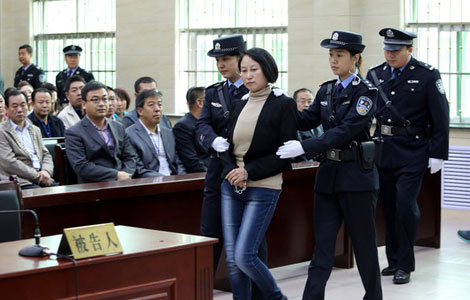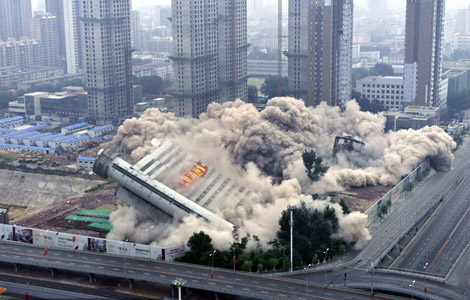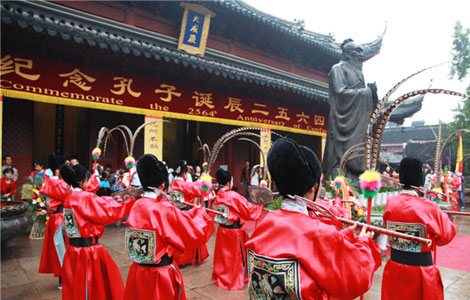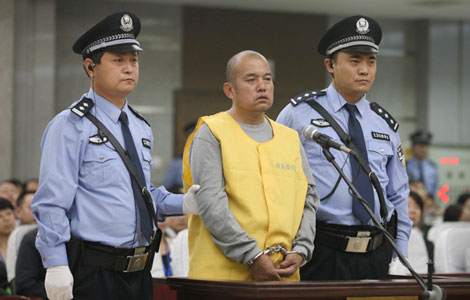

 |
|
Qiu Xiangju, a resident of Yongguang, a village in Minxian county, cooks for two other families several days after the magnitude-6.6 earthquake that hit the county on July 22. [Photo by Cao Zhizheng / for China Daily] |
Premier Li Keqiang called for a systematic method of coping with natural disasters in an orderly and effective manner after visiting an earthquake-ravaged village in Gansu province.
People should be the top priority in the rescue, relocation and rebuilding efforts in natural disasters, Li said on Saturday.
"People are the most valuable resource," Li told officials in Minxian county, Gansu.
The premier visited Yongguang, in Minxian, on Saturday afternoon. Twenty-one Yongguang villagers died in the magnitude-6.6 earthquake on the border of Minxian and Zhangxian counties on July 22. The quake killed at least 95 people and affected 2.36 million others.
Hearing that the villagers lack warm shelters for the upcoming winter, Li told the local government to provide 10,000 thick tents before the end of this month. He also urged setting up heating devices for the residents by the end of September.
"Temporary classrooms should be built as soon as possible to make sure that the children can go to school in the new semester," Li said.
Li promised to improve the quake-jolted region's infrastructure, including repairing roads and setting up pipelines with drinkable water.
The different levels of local government should play the main role in the natural disaster rescue operations because they are more familiar with the local geography and social situations, the premier said.
At the same time, the central government should make systematic policies to help people get on their feet again while encouraging them to be self-sufficient, Li said.
"Our country has a vast area with natural disasters occurring frequently," Li said. "We should summarize experiences and set up a systematic, orderly and effective mechanism to deal with natural disasters."
Gansu Governor Liu Weiping said the local government will put the premier's instructions into action to help people rebuild their houses and supply them with sufficient food, water and medicine.
The region is on a plateau 2,700 meters high, which has made the rebuilding effort difficult, the provincial governor said.
Winter starts early in October and ends late in May, and as a result, reconstruction work will be delayed due to the long-lasting frozen period, Liu said.
To help the poverty-stricken villagers get jobs, the provincial government plans to offer training in the quake-hit areas, Liu said.
Liu also suggested establishing 76 relocation sites for about 7,000 families whose houses are on the earthquake belt, and he asked for 608 million yuan ($99 million) from the central government for the project.







